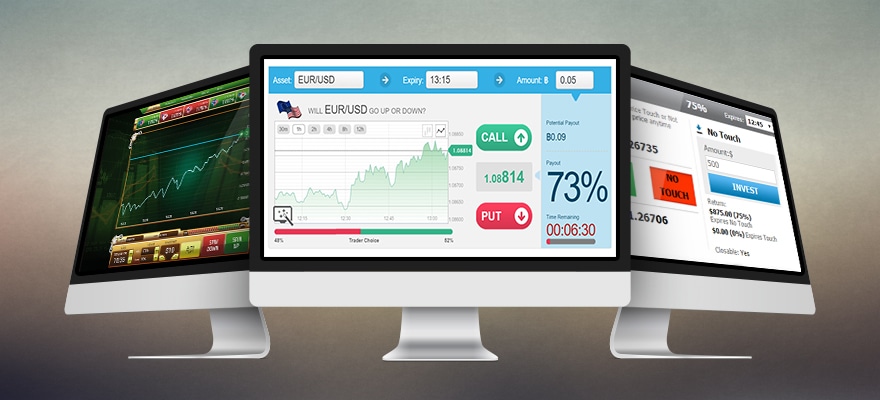Rachel Sartini is the Founder and CEO of B2Binary, a consulting agency focused on helping brokers launch or enhance their business. Rachel offers both B2C and B2B expertise with the goal of providing brokers with the right information to make educated business decisions.
The online trading industry as a whole has seen exponential growth over the past 5 years. In today’s competitive market place there is a new broker launching everyday. This increased popularity in operating a binary options brokerage has strengthened the business of leading service providers and introduced new players to the game. Everyone wants a piece of the action from this high revenue industry, and why not?
However, the growth of this overly saturated market has introduced two issues. Aside from the industry’s biggest names, brands today are having difficulty with either launching or taking it to the next level and standing out among the many. These difficulties are side effects of launching a brokerage without having the right information, plan, resources and guidance.
There are many aspects involved in planning and building an operation that can sometimes be overlooked or underestimated. The honest truth is that when you’re launching a brokerage you do not have time to be involved in every detail. Let’s face it, with building operational structure, recruiting, training, salaries, office management and a personal life, there is not much time for the fine print.
Choices
Brokers repeat the same yet avoidable mistakes during the pre-launch stage simply because they do not know otherwise. Even the choices you make in the initial planning stage are critical to your success.
One of the first and most integral choices in launching a binary options brokerage is choosing a platform technology provider.
With the increasing competition among platform providers, it is becoming easier and cheaper to open a white label platform.
In the present-day market, the first mistake made by brokers is shopping around for the cheapest or quickest set up. In some cases, drastically low set up fees can indicate a lower level of support or technological capabilities. An offer with competitive pricing can be great, but remember, you get what you pay for.
Instead of doing a price comparison like you’re shopping on Skyscanner, conduct the right research on each provider and make an informed decision. Sometimes just knowing the right questions to ask can make all the difference. Any broker choosing a platform provider should consider the following:
Technology
The three S’s: Stability, scalability and security. You hear these words but do you really understand their meaning? A platform provider with stable technology has the ability to handle a high level of traffic and transactions and scale as needed.
Your data is the core of your business so choosing a secure and reliable partner is key, especially in this industry. Your back office and CRM should be protected from potential external attacks or hacks and internal database theft. Unfortunately, we have all heard too many stories about stolen data.
Integrations
Integration with leading third party solutions has become an industry standard. From affiliate tracking systems to online education centers, make sure your operational needs are covered with your new technology partner.
Some brokers have specific requirements that may not meet with standard integration. If this is the case, make sure your chosen partner has the flexibility to support additional third party providers. Most of the larger providers will be stricter in sticking to their pipeline and are less likely to do additional integration.
Regulated Solution
One obvious way to stand out in the market today is regulation. However, with the high fees and detailed process associated with gaining regulation, not to mention the need for ongoing compliance, more brokers are seeking a regulated white label solution. In this case, the platform falls under the umbrella of a regulated entity that is responsible for all banking and compliance operations.
It is becoming more and more common for brokers to take this direction. However, it is important to note the recent announcement from CySEC and the threat it poses on brokers using regulation through another entity. Obviously the solution offered through a platform provider seems more stable for now.
Not every provider offers this regulated model and not every broker is attracted to it. Having compliance and related departments in-house can even be more efficient when done right. Lacking the right KYC practice can affect your retention efforts, result in more chargeback cases and lead to a decrease in your player value.
Support
More and more recently it seems like brokers are not only looking to platform providers for technology, but also for guidance through the pre-launching process. Service providers should be seen as experts in their fields. However, keep in mind that they also have alternative motives when they send an introduction to their “recommended” payment service provider. It is important to find the relationship balance between product licensing and partnership.
With all the gray area and dark alleys this industry has to offer, I recommend working with a reliable channel to successfully launch all operational sides of a binary options brokerage. Sometimes all we need is someone to lean on, after all we’re only human and we all make mistakes.
Having the right information and planning ahead can make the difference in avoiding the preventable yet common mistakes brokers make, leading to a more successful launch. The industry’s rapid growth has brought about a wave of new service providers, make sure you choose yours for the right reasons.





Be First to Comment